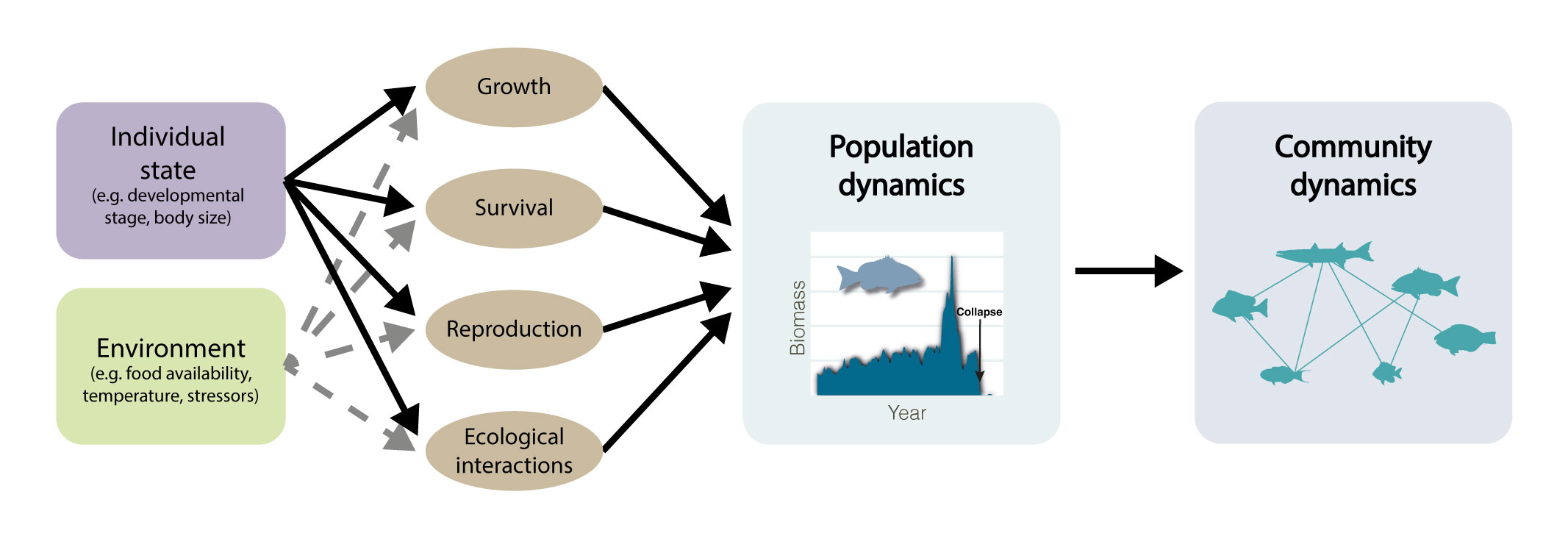Eco-evolutionary responses to environmental change across scales
Understanding how environmental change affect the capacity of organisms to complete their life-cycle is essential for predicting how species and ecosystems respond to environmental change.
The persistence of populations depends on the capacity of organisms to reproduce. But before organisms can reproduce, they must undergo one or various juvenile or immature stages during which they grow, sometimes substantially. Some fish species, for example, grow 4 to 5 orders of magnitude in size between hatching and the onset of reproduction. Hence, the capacity of populations and species to persist in the face of global change crucially depends on the capacity of organisms to develop, grow, and survive from zygote to reproduction, or in other words, to complete their life cycles. Therefore, studying how multiple environmental stressors, by altering the performance of different developmental stages, affect population dynamics is central to understanding species persistence and, ultimately, the maintenance of biodiversity.
Scaling up from the interaction between an organism and its environment to the persistence of populations and community dynamics
My approach to this problem is to leverage knowledge at the individual scale to predict the responses of populations and communities to a changing environment. To do so, I use information from metabolic and physiological processes to formulate size/stage-structured models. These models provide a quantitative framework to study the population and community consequences of the complex regulatory process underlying organisms’ development, growth, and survival in an eco-evolutionary context. I use these models to investigate how metabolic and physiological effects of various stressors scale up to alter individual performance, population persistence, and community dynamics.

I have applied this approach to investigate the impacts of multiple stressors on migratory fish populations and showed that, when combined, the cumulative impacts of multiple stressors at the individual level can produce nonlinear responses at the population level, making it very challenging to predict the cumulative impacts of stressors from their independent effects (Chaparro-Pedraza, P.C., De Roos, 2021). This approach can also be used to evaluate the effectiveness of ecosystem management strategies. With collaborators, for example, I assessed the consequences of implementing marine protected areas on community stability (Chen, R., Chaparro-Pedraza, P.C., et al. 2023).